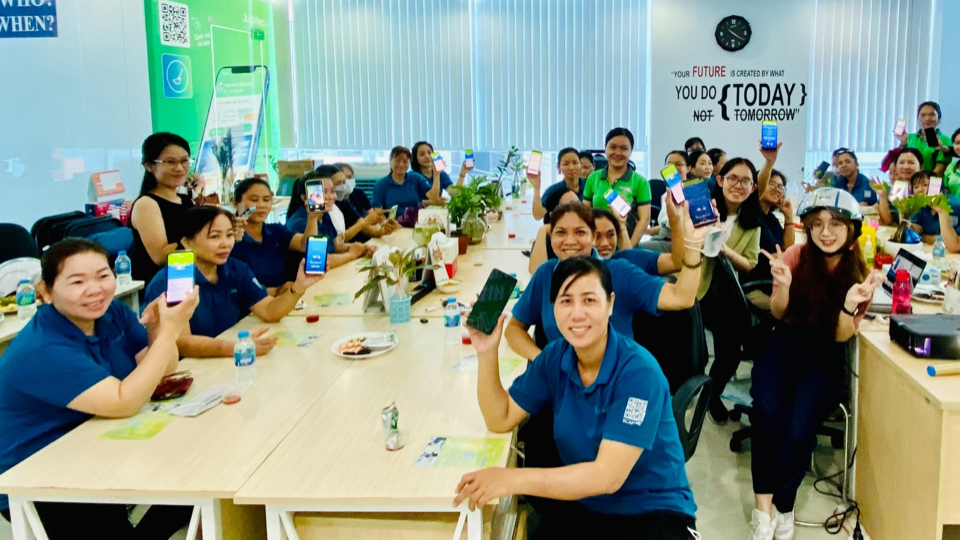How insurtech is expanding the borders of financial inclusion

For decades, traditional insurance has served the needs of majority of the population, but it has also inevitably excluded certain segments who either cannot afford premiums or struggle to find a product to suit their requirements.
One such group are gig workers, who rely on apps or digital platforms to find jobs. The so-called “gig economy” constitutes a different work model, where workers do not adhere to conventional work patterns or traditional working hours and rely on variable income for their livelihood. Examples include domestic helpers who work based on demand, or drivers who depend on ride-hailing apps.
This limits insurance accessibility as most traditional insurance policies, including personal accident, motor insurance and critical illness, are often sold as annual policies with a lump-sum payment. This may be perceived by gig workers as too expensive to afford or commit to, often leaving many without basic protection.
“The nature of work is evolving in a way which means traditional models of insurance are no longer fit for purpose,” says Edlyn Khoo, Vice President and Head of Regional Business, Digital Transformation at Income Insurance. “There’s a need for bite-sized insurance to help those who are excluded from traditional insurance policies.”
Insurtech innovations are reinventing access to insurance
Recently, developments in insurtech and the rise of digitally embedded insurance are starting to reinvent access to insurance. This brings tremendous opportunities for insurance providers as consumers are increasingly spending more time on digital platforms. Insurance-as-a-service (IaaS) platforms such as HIVE by Income are key enablers in helping incumbent insurers to launch, localise and scale embedded and innovative insurance propositions to reach new digital customers.
HIVE by Income is operated by Income Insurance, which was established as a composite insurer in Singapore 53 years ago, providing life, health and general insurance. “What is unique about us is that we have both the insurance domain expertise and digital capabilities of an insurer and an insurtech respectively,” points out Khoo. “We have inclusive solutions such as stackable insurance that have been tried and tested in Singapore and are now being scaled in the region, including in Vietnam, Indonesia and Thailand.”
Some insurers and digital work platforms in the region are seizing this new business opportunity by leveraging HIVE by Income’s technology and expertise to drive greater accessibility to insurance and increase speed to market in an asset-light manner. “We’ve already successfully launched new insurance models, including stackable insurance models in Singapore, and are excited to extend these offerings to the region,” adds Khoo. “This means insurance firms and platform owners can unlock new opportunities in a much more agile manner, delivering embedded insurance products to customers as a seamless part of their existing customer journeys.”
Stackable insurance solutions drive greater accessibility and inclusivity
A stackable insurance model involves paying bite-sized premiums for each transaction and stacking insurance coverage. These transactions are typically linked to a lifestyle or specific activity, such as taking public transport, completing a job or going for a jog and clocking a certain number of steps, to accumulate the corresponding insurance coverage over time.
“Segments of the community who were previously locked out of traditional insurance due to affordability and accessibility issues can now buy micro-insurance that can stack up to meaningful coverage,” explains Khoo. The stackable nature also de-risks the product for insurers, she explains, as individuals can only file a larger claim when they have built up sufficient coverage over time.
In Singapore, Grab drivers can accumulate critical illness coverage for every ride they complete with a micro-premium from as low as SGD0.30 or US$0.22. To date, over 20 million micro-policies have been issued. Similarly, Foodpanda delivery riders in Singapore can stack bite-sized insurance coverage, including term life, personal accident or critical illness, using a pay-as-you-earn micro-insurance offering. They contribute micro-premiums to stack coverage every time they complete a delivery.

In Vietnam, local insurance firm PTI and housekeeping agency JupViec offer domestic helpers pay-as-you-earn personal accident cover. Whenever the domestic helper completes a job on the JupViec app, a premium from as low as 2,000 VND or US$0.08 is automatically deducted from the worker’s e-wallet. This enables them to accumulate the corresponding coverage with each job completed, as well as offering the flexibility to start and stop coverage at any point. Currently, over 40 per cent of JupViec’s domestic helpers have taken advantage of this offering to build up their own insurance portfolio.
The growth in e-wallet usage, particularly in China, India and Southeast Asia, has been remarkable in recent years. Consumers have moved straight to using mobile payments/e-wallets online.
In Vietnam, TPBank leverages HIVE by Income’s platform to embed stackable micro-insurance into its digital banking services. This allows customers to obtain insurance for 5,000 VND or US$0.20 each time they make any funds transfer or QR payments via the TPBank mobile app. “We’ve integrated insurance into the daily lifestyle of digital-first banking customers, enriching the online banking customer journey,” says Ms Khoo. “Every time they scan a QR code or transfer money via the TPBank app, it allows them to trigger micro-insurance at a very affordable premium, which they can accumulate over time.”
New opportunities for insurers and digital platform owners
Inclusive insurance is also about meeting emerging insurance needs. For instance, Income Insurance currently provides usage-based motor insurance with Carro, a car marketplace offering drivers access to pay-per-kilometre motor insurance. With the increasing popularity of electric vehicles globally, there are opportunities to explore pay-per-kilowatt motor insurance.
HIVE by Income seeks to accelerate inclusive insurance by partnering with insurers and digital platform partners who share the vision of providing affordable and accessible insurance across the region. “It’s important that we continue to innovate with our partners and the regulators to drive sustainable inclusivity to shape the future of insurance,” says Khoo. “Our mission is to create greater financial access and flexibility for all through customer-centric offerings.”
To find out more about HIVE by Income, visit hive.income.com.sg.


Business Reporter Team
Most Viewed
Winston House, 3rd Floor, Units 306-309, 2-4 Dollis Park, London, N3 1HF
23-29 Hendon Lane, London, N3 1RT
020 8349 4363
© 2025, Lyonsdown Limited. Business Reporter® is a registered trademark of Lyonsdown Ltd. VAT registration number: 830519543





